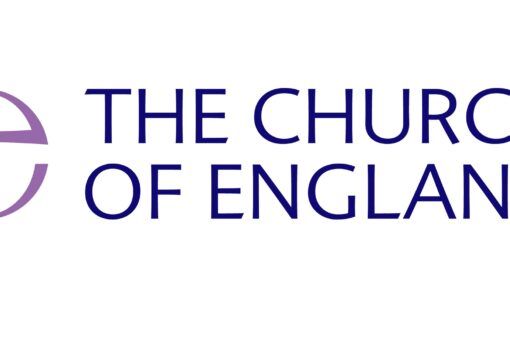Senior clergy disappointed by Church of England’s decision to remain opposed to assisted dying following Synod debate

- 1 in 6 Synod members either rejected or abstained from vote on motion to maintain opposition to law change
- Lack of clarity from leadership on Church’s position on assisted dying inquiry
The former Archbishop of Canterbury, Lord Carey, and the Dean Emeritus of Durham, the Very Reverend Michael Sadgrove have expressed disappointment over the Church of England’s decision to remain opposed to a change in the law on assisted dying following a debate at General Synod on Sunday 10 July 2022.
One in six Synod members did not vote in support of a motion urging the Church to maintain its opposition to assisted dying, with 25 rejecting it and 33 abstaining.
Canon Val Plumb, who spoke against the motion, asked for clarity on the Church’s position on an inquiry on assisted dying after it adopted a policy in 2014 of supporting a Royal Commission on the topic, however this information was not forthcoming. Canon Plumb also paid tribute to her mother, who died from pancreatic cancer in the same year:
“…No amount of superb hospice care could ever take away the indescribable look of terror and despair in my mother’s eyes as she struggled to sit up just to vomit black sludge…. She was a deeply religious woman who throughout that time repeatedly asked if things could be speeded up because for her heaven was now the only relief.”
Emily Hill, a healthcare professional who worked on a Covid ward during the pandemic and was making her maiden speech at Synod, also spoke against the motion.
This comes after MPs debated assisted dying on Monday 4 July 2022, after over 155,000 people signed Dignity in Dying’s petition calling for law change. MPs from all parties called for a parliamentary inquiry on assisted dying, with speakers in favour of reform outnumbering opponents by two to one. Polling published last Monday revealed that three-quarters (74%) of the public also back an inquiry to examine the impact of the current law, potential changes to legislation and what impact these changes might have.
The British Medical Association last month voted to maintain its position of neutrality on assisted dying, a stance it adopted last year after conducting the largest ever survey of medical opinion on assisted dying. Their poll found that a majority of doctors (61%) disagreed that the BMA should remain opposed, with half of doctors personally supporting a change in the law (50%).
Speaking after the Synod debate, Lord Carey of Clifton, former Archbishop of Canterbury and member of the Religious Alliance for Dignity in Dying (a group of religious leaders and lay people representing 14 different denominations) said:
“If the Church were to revoke its support for an inquiry, it would raise serious questions about whether it is truly committed to fair and open debate on assisted dying. And in that spirit surely it is time for Church leaders to listen to people in the pews who, like me, have changed their views as a result of seeing terrible suffering and indignity towards the end of the lives of those they know and love.”
The Very Reverend Michael Sadgrove, Dean Emeritus of Durham said:
“I am disappointed that the General Synod has rushed to judgement over assisted dying when a clear majority in the nation believe that it is essential to hold a grown-up, open-minded conversation about the choices available to dying people who are suffering through terminal illness. The Church of England appears not to have learned from its reversal of formerly implacable opposition to similar social issues such as contraception and remarriage after divorce. As consensus grows among ethicists, medics, parliamentarians and lawmakers, I believe Synod will find it needs to revisit this premature resolution in due course.”
Dignity in Dying campaigns for a change in the law to allow terminally ill, mentally competent adults the choice of an assisted death in their final months, subject to strict safeguards and alongside high quality end-of-life care – a model supported by 84% of the British public and which that is in place in 11 jurisdictions in the US, all Australian states and across New Zealand.
Sarah Wootton, Chief Executive of Dignity in Dying, said:
“The Synod’s decision to maintain its opposition to assisted dying is no surprise, as Church leaders have long been out of step with the views of ordinary people on this issue. The 80% of religious people who support law change will no doubt be dismayed that the Church has once again failed to acknowledge the devastating impact of the current law on dying people and their loved ones.
“This decision signals that the Church is also out of touch with a majority of MPs in Westminster, who have moved in favour of an inquiry on assisted dying. Proposals for assisted dying legislation are progressing in Scotland, Jersey and the Isle of Man and states and nations across the world are continuing to legalise this option. It is only right that both the Church and the government reflect on what our current laws really mean for dying people and their families. Surely this is something those on all sides of this debate can agree on.”
*ENDS*
For further information please contact Molly Pike, Media and Campaigns Officer, Dignity in Dying, at molly.pike@dignityindying.org.uk or 07929731181.
Notes for editors:
A Private Members Motion reaffirming the Church of England’s opposition to assisted dying was supported by 289, opposed to 25 with 33 abstentions at the Synod on Sunday 10th July 2022.
A Populus (now Yonder) poll commissioned in 2019 found that 80% of people with faith supported the legalisation of assisted dying for terminally ill adults with mental capacity, whether they would want the choice for themselves or not: https://yonderconsulting.com/poll-archive/Dignity-in-Dying-GB-poll-11-24-March-2019-Q1-Q2-tables-for-publication.pdf
Dignity in Dying’s official government petition: https://petition.parliament.uk/petitions/604383